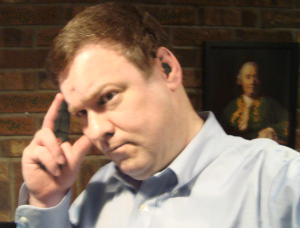About
 There is an infinity of ways in which I might begin this explanation of what diabasis.com is about, but perhaps the place to begin would be a remark George Orwell once made in an essay. “Most people get a fair amount of fun out of their lives, but on balance life is suffering, and only the very young or the very foolish imagine otherwise.” Orwell does not expand much upon or defend this rather striking statement, perhaps seeing it as too obvious to be in need of a defense.
There is an infinity of ways in which I might begin this explanation of what diabasis.com is about, but perhaps the place to begin would be a remark George Orwell once made in an essay. “Most people get a fair amount of fun out of their lives, but on balance life is suffering, and only the very young or the very foolish imagine otherwise.” Orwell does not expand much upon or defend this rather striking statement, perhaps seeing it as too obvious to be in need of a defense.
I am no longer very young (I am 44 as I write these words — I shall have to leave it to you readers to decide whether I am very foolish), and I have come to believe that Orwell was right. And so was Schopenhauer, and so is David Benatar. Human life is mostly suffering. Most people’s lives go much worse than even the people who are living them realize. With rare exceptions among us, we are burdened by gross self-deception and wishful thinking about our prospects.
When I was younger, I was a meliorist. I was not so foolish (even then) as to think that there was not a great deal of suffering in the world. But I thought — optimistically — that with good will and intelligence human life could be made much better, something that we could tolerate, perhaps if we were very lucky, even celebrate. Improved public policy and incremental technological progress would save us. The effect of improved public policy will be marginal; the predominant effect even of successful social reform will be the redistribution of misery. Incremental advances in technology will be equally feeble. As long as humanity goes on, so will the suffering.
If you love humanity, you will want it to come to an end.
I realize this view is paradoxical, deeply counterintuitive, indeed profoundly shocking. Most people will be inclined to reject it out of hand. The minor reason for my blogging is to defend it.
But what does it mean for humanity to end? Kindly believe that I am not advocating precipitating the apocalypse or any other form of omnicide. And while I do agree with Sister Y‘s dictum that “…in a just society, a Nembutal prescription would be available to any adult who asked for it and could articulate a clear wish to die, along with a non-delusional reason for wanting to die,” [1] I don’t anticipate that I will be writing primarily about suicide, either.
But what I will be looking at here is ways out of our predicament. There are two that strike me as salient.
(1) Antinatalism: We should stop making new people, because every new person is a locus of suffering. If we stop making new people, eventually humanity will go extinct. No more people, no more suffering (at least, no more human suffering). This view is defended by David Benatar in his Better Never to Have Been.
(2) Posthumanism: We aim for radical, rather than incremental change, and either transform or replace ourselves with very different kinds of descendants whose quality of life is radically superior to ours. This is a program defended by Oxford philosopher Nick Bostrom and it has strong affinities with David Pearce’s abolitionist project.
Which way to turn? I feel at once more excitement and more perplexity trying think out matters between these two possibilities than I have before any philosophical problem I have ever encountered, and I have encountered a few. To put matters crudely, it sure sounds like a lot more fun to be some sort of immortal, ecstatic superman than it does to just be dead. But at the same time, there are serious arguments to the effect that posthumanism is delusion — that it is too dangerous or costly or likely (or certain) to fail somehow.
Much thought is called for. And how can I know what I think until I see what I say? So here we come to the major reason for my running this blog, which is to deliberate (or perhaps just to ruminate) over what I think might be the biggest issue of all. Do we exit humanity via extinction, or posthumanity?